In the Beginning...by Dorothy Powers
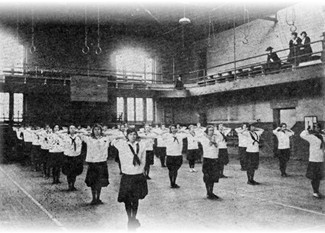 My earliest memories are from the age of three or four in Fort Wayne, Indiana…visiting school with my older brother and seeing those crazy black bloomers the girls wore in gym class; my brother giving me my first haircut; by brother deciding to see what is what like to sit in the seat of a policeman's motorcycle parked below the stadium near our house. He no sooner was in the seat when a policeman yelled at us from the top of the stadium. I was so petrified…I thought I was going to faint!
My earliest memories are from the age of three or four in Fort Wayne, Indiana…visiting school with my older brother and seeing those crazy black bloomers the girls wore in gym class; my brother giving me my first haircut; by brother deciding to see what is what like to sit in the seat of a policeman's motorcycle parked below the stadium near our house. He no sooner was in the seat when a policeman yelled at us from the top of the stadium. I was so petrified…I thought I was going to faint!
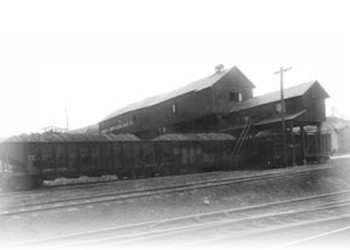 Then came the economic crash and the loss of my father's job with the construction company for which he had left his home in Arkansas at the age of 17. We hurried back to my mother's hometown in Southern Indiana where relatives and friends helped support one another. Eventually my father became a "big-shovel" operator in the coalmines.
Then came the economic crash and the loss of my father's job with the construction company for which he had left his home in Arkansas at the age of 17. We hurried back to my mother's hometown in Southern Indiana where relatives and friends helped support one another. Eventually my father became a "big-shovel" operator in the coalmines.
I started school in the small town of Winslow…entering first grade at the age of five. I loved school from the beginning and spent many hours "playing school" with my younger sister at home.
 My first three years of school were also a church-going period, where I learned the old hymns and heard "special numbers" sung, usually by family singers--husband and wife duets; family quartets, brother-sister or sister duets. My sister and I picked up on this and began singing duets in harmony publicly when she was 3 and I was 5. We had never heard of soprano or alto--we called it singing "high" and "low" and sometimes fought over who was going to sing which part.
My first three years of school were also a church-going period, where I learned the old hymns and heard "special numbers" sung, usually by family singers--husband and wife duets; family quartets, brother-sister or sister duets. My sister and I picked up on this and began singing duets in harmony publicly when she was 3 and I was 5. We had never heard of soprano or alto--we called it singing "high" and "low" and sometimes fought over who was going to sing which part.
We moved to house that became "home" when I entered the fourth grade. It was 3 miles out-of-town and situated on a state highway. "Home" was a four-room house for a family of 5 without running water, an outdoor toilet, two coal stoves and a fireplace for heat. Outside the house were 13 acres that included a lake, a garden spot, an open field, a woods, a chicken house, barn, coal shed, a deep well for drinking water and a cistern for catching rain water for washing clothes, hair, etc. (Every drop of water used had to be drawn with a rope and bucket or a bucket on a pulley.)
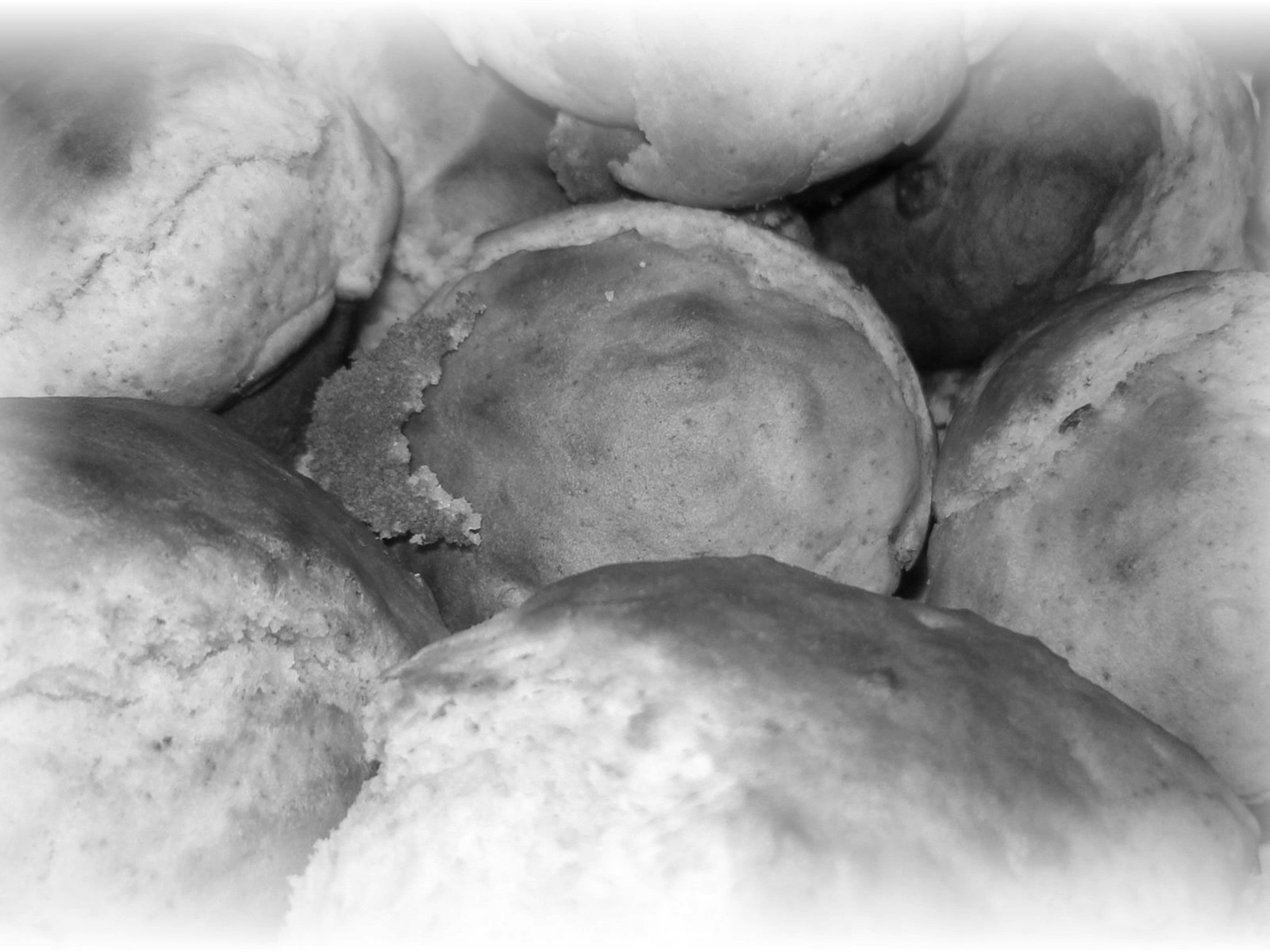 My parents were very responsible people. Mornings, mother always arose first and had the fires going and a hot breakfast prepared before we were awakened. (I can still smell her hot yeast rolls that would hit my nostrils as I got off the school bus in the late afternoon. My father never spent time in the local taverns. Leisure time was always spent productively…gardening, hunting and fishing which put food on the table.
My parents were very responsible people. Mornings, mother always arose first and had the fires going and a hot breakfast prepared before we were awakened. (I can still smell her hot yeast rolls that would hit my nostrils as I got off the school bus in the late afternoon. My father never spent time in the local taverns. Leisure time was always spent productively…gardening, hunting and fishing which put food on the table.
But life at home was very dull. My father worked the night shift and we three children were expected to be quiet during the day so as not to disturb his sleep. Thus, our activities were limited and there was no money to buy interesting books, other than our schoolbooks. Our mother did not drive and father made once-a-week trips to town for groceries or other necessities.
 The dull life at home made me seek anything that was happening at school. I began working in lunchrooms for my lunch in the eighth grade. I wanted very much to be part of the sport's scene, which was basketball, but that was considered money foolishly spent by my parents. However, I learned that if you were a cheerleader, you received a season ticket free and transportation was provided to "away" games. For home games, my mother would have my cheerleading outfit pressed and laid-out. I would get off the school bus as
The dull life at home made me seek anything that was happening at school. I began working in lunchrooms for my lunch in the eighth grade. I wanted very much to be part of the sport's scene, which was basketball, but that was considered money foolishly spent by my parents. However, I learned that if you were a cheerleader, you received a season ticket free and transportation was provided to "away" games. For home games, my mother would have my cheerleading outfit pressed and laid-out. I would get off the school bus as 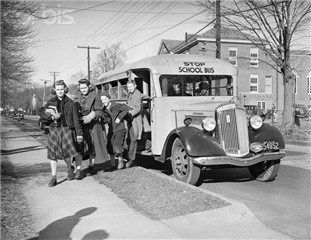 the driver made his run down the state highway. It took about 10 minutes to finish his run and on his way back to town, he would stop and pick me up again. I would have changed into my cheerleading costume and also be carrying a sack lunch that my mother had prepared for me. I would go to a small restaurant in town, where I was permitted to sit in a back booth and do homework until game time. After the game, I was totally dependent on others for a ride home or stayed overnight in town with a friend.
the driver made his run down the state highway. It took about 10 minutes to finish his run and on his way back to town, he would stop and pick me up again. I would have changed into my cheerleading costume and also be carrying a sack lunch that my mother had prepared for me. I would go to a small restaurant in town, where I was permitted to sit in a back booth and do homework until game time. After the game, I was totally dependent on others for a ride home or stayed overnight in town with a friend.
I also played trumpet in the school band, but had a terrible instrument on which it was impossible to make any decent sounds. There was also a girls Drum & Bugle Corps of which I became Drum Major. Since there was a yearly change of music teachers, The Drum Major was in complete charge of any summer performances--usually Memorial Day, the 4th of July and Labor Day. Thus, by the time I was a sophomore, I was planning formations for a marching unit.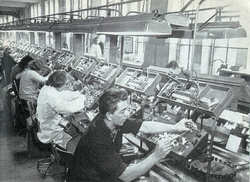
World War II led me to work on an assembly line at the age of 16, between my Junior and Senior years in high school making radio tubes. I decided there was no way that I was going to spend my life on an assembly…thus, one of my benchmarks!
I received a scholarship to study voice at Evansville College when I graduated, but still could not afford to go, so I took a Civil Service Test and began clerical work at the Crane Ammunition Depot. The war was over that summer and it was also the end of the job. I spent the next two years doing clerical work for a construction company and working for an abstract & title company in Indianapolis.
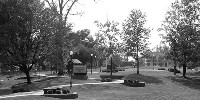 When my brother returned home from the Navy, he began attending classes at a small college--Oakland City College--13 miles from home. I left Indianapolis and went home to commute to the school with him. This is where I met real educators…people who taught without pay during the war to keep the school running; teachers who took an interest in your
When my brother returned home from the Navy, he began attending classes at a small college--Oakland City College--13 miles from home. I left Indianapolis and went home to commute to the school with him. This is where I met real educators…people who taught without pay during the war to keep the school running; teachers who took an interest in your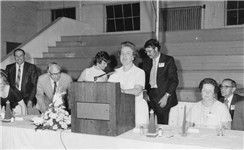 total life to help you grow; people who lived their lives in such a way, that I knew the world would be a better place if others followed their example. They were the most important benchmark in my decision to become a teacher. I have tried to "pass on to my students' what they "gave to me."
total life to help you grow; people who lived their lives in such a way, that I knew the world would be a better place if others followed their example. They were the most important benchmark in my decision to become a teacher. I have tried to "pass on to my students' what they "gave to me."
